The views expressed in our content reflect individual perspectives and do not represent the authoritative views of the Baha'i Faith.
In a world where material pursuits and practicality dominate, I wonder: Is everyone inherently an artist, or do artists belong to a distinct category of humans? Do we all have art in our souls?
If we’re all artists, what unique insights do artists bring to our communities and the world at large?
I strongly believe that everyone within their own right is an artist. As children, we’re naturally drawn to make art, dance, and music. Some are fortunate enough to have the ability to dedicate time to nurturing their skills in arts and crafts at a younger age, and try to find ways as adults to make artistic expression their focus. Others express themselves creatively in their own field or medium, or simply in their daily lives.
RELATED: Exploring a Baha’i and Native American Cultural Perspective on Art
The Baha’i teachings urge all people to develop themselves artistically. In his writings, Baha’u’llah beautifully described the importance of recognizing this calling, and ensuring that we put our utmost effort into developing these latent skills. In one of The Hidden Words, Baha’u’llah wrote:
O My Servants! Ye are the trees of my garden; ye must give forth goodly and wondrous fruits, that ye yourselves and others may profit therefrom. Thus it is incumbent on everyone to engage in crafts and professions, for therein lies the secret of wealth, O men of understanding! For results depend upon means, and the grace of God shall be all-sufficient unto you. Trees that yield no fruit have been and will ever be for the fire.
If it is “incumbent on everyone to engage in crafts and professions” then we are all capable of sharing this capacity with others – and becoming artists. Each human being has something to express, and it should be the role of our communities to ensure that everyone gets the opportunity to do so in a safe and encouraging environment.
However, many of us tend to get caught up in the storm of materialism and consumption. Because “Trees that yield no fruit have been and will ever be for the fire,” however, simply existing isn’t enough. We all need to not only grow and develop ourselves creatively, but get to a stage where we can share those artistic fruits with others and contribute to this ever-advancing civilization in an integrative way.
The psychiatrist and philosopher Carl Jung described the mysticism of creative expression, reinforcing Baha’u’llah’s message, when Jung wrote:
Creative expression, which is the absolute contrary of ordinary expression, will be forever hidden from human knowledge. We may continue to describe it and sense it, but in appearance only, and we will never understand it. The creative energy lives and waxes in the man as a tree in the earth from which it takes its nourishment. It might be well, therefore, to regard the creative process as a living thing, implanted, as it were, in the souls of men.
Jung’s insight reminds me of my own experience with creative expression and the arts. The first medium I sought to express myself through – photography – allowed me to interact with the world. I fondly remember my first camera, which I used to take pictures of scenes and people, making future memories.
But after my initial involvement with photography I began to feel defeated, convincing myself that my city was boring and the only way to get “cool photos” was by travelling. After months of deliberation, however, I decided on a new approach – take as many photos as I could during the day in the place where I lived, and see what would happen. After the first week I realized that my new goal of taking many photos in a single place forced me to seek beauty that most others might see as mundane or repetitive. It made me realize that beauty is everywhere – it just takes someone to focus on it and present it creatively. This reminds me of something Abdu’l-Baha said:
In the Baha’i Cause arts, sciences and all crafts are (counted as) worship. Briefly, all effort and exertion put forth by man from the fullness of his heart is worship, if it is prompted by the highest motives and the will to do service to humanity.
Art not only allows us to express ourselves through an organic medium, it also provides us with the toolset to reveal hidden truths to an audience that can awaken and contribute to the cultural and social transformation of their respective communities.
RELATED: Poetry: From the Heart, and For the Heart
In the Baha’i Faith, the station of arts and crafts has been elevated, so it is seen as not only a form of worship, but as a means of promoting the welfare of humankind. Bahaʼu’llah wrote:
The purpose of learning should be the promotion of the welfare of the people, and this can be achieved through crafts. It hath been revealed and is now repeated that the true worth of artists and craftsmen should be appreciated, for they advance the affairs of mankind. Just as the foundations of religion are made firm through the Law of God, the means of livelihood depend upon those who are engaged in arts and crafts. True learning is that which is conducive to the well-being of the world, not to pride and self-conceit, or to tyranny, violence and pillage.
This speaks to a new paradigm for the role of artists, one that I look forward to seeing embraced more broadly in the world.
Clearly, the essence of artistry is a universal human potential, one that all individuals can unlock and express in their own unique way. Whether one identifies as an artist or finds creative expression in their own field, everyone contributes to the tapestry of human culture. Artists, in their diverse forms, bring unique perspectives and insights to our communities, transforming the mundane into the extraordinary and helping us see and recognize beauty in unexpected places.


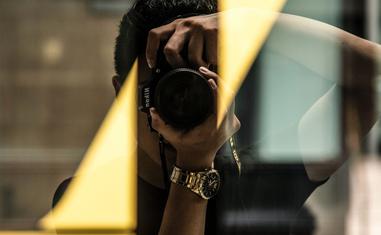


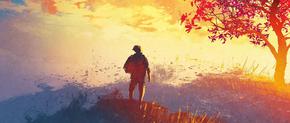
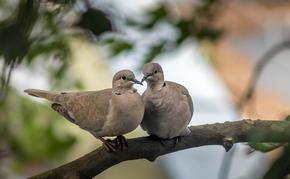
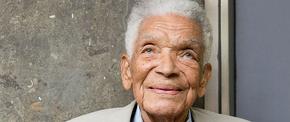
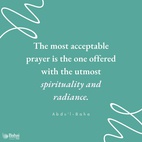
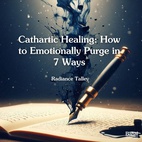

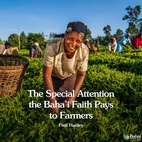
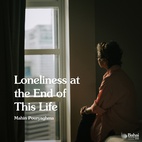
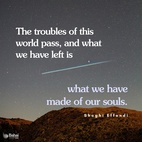
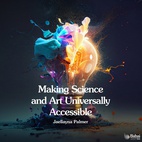


Comments
Sign in or create an account
Continue with Facebookor